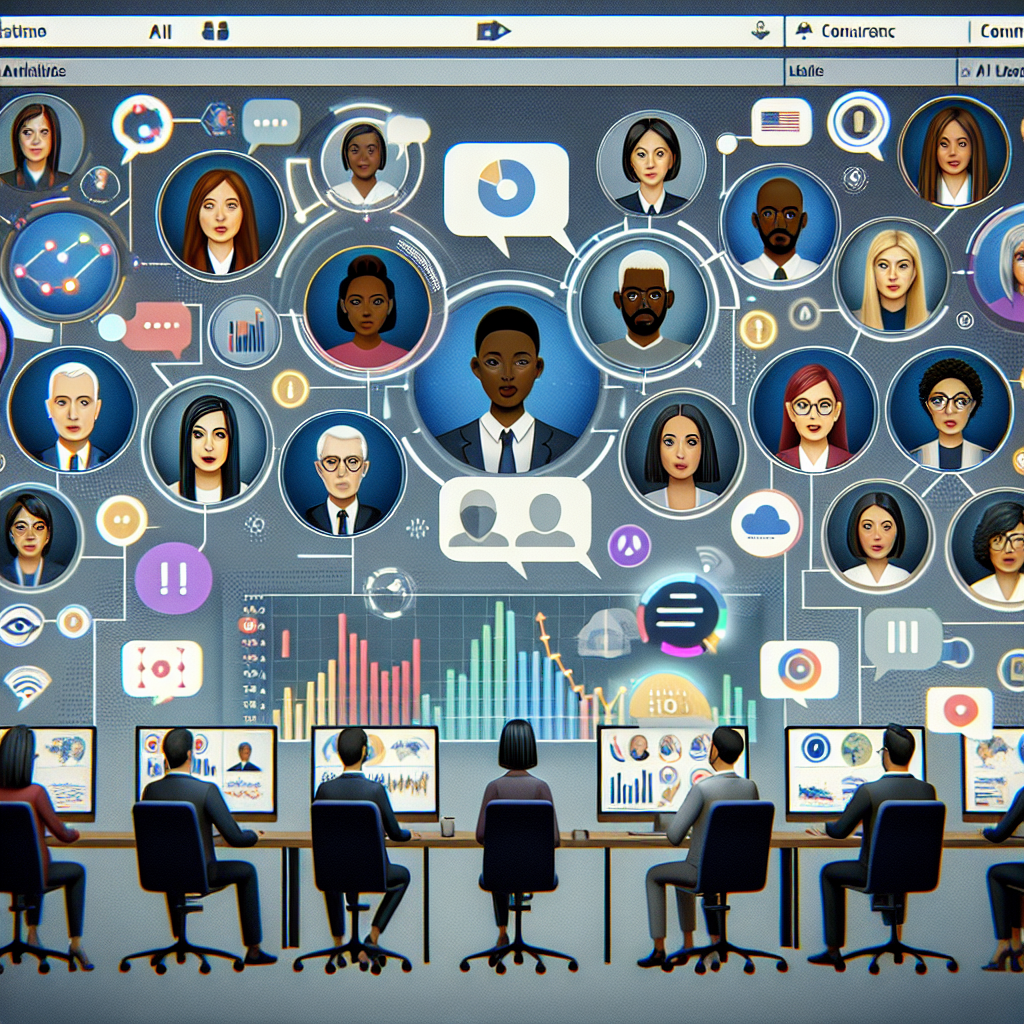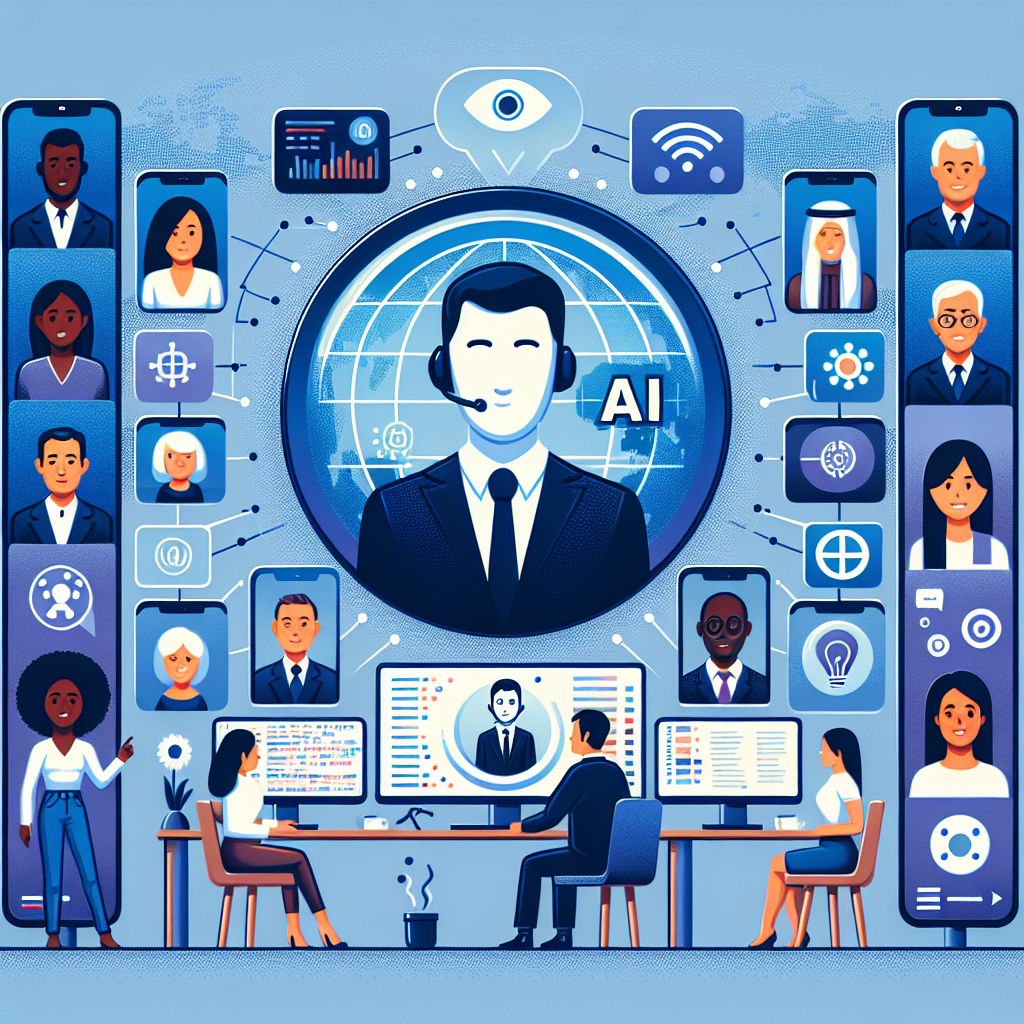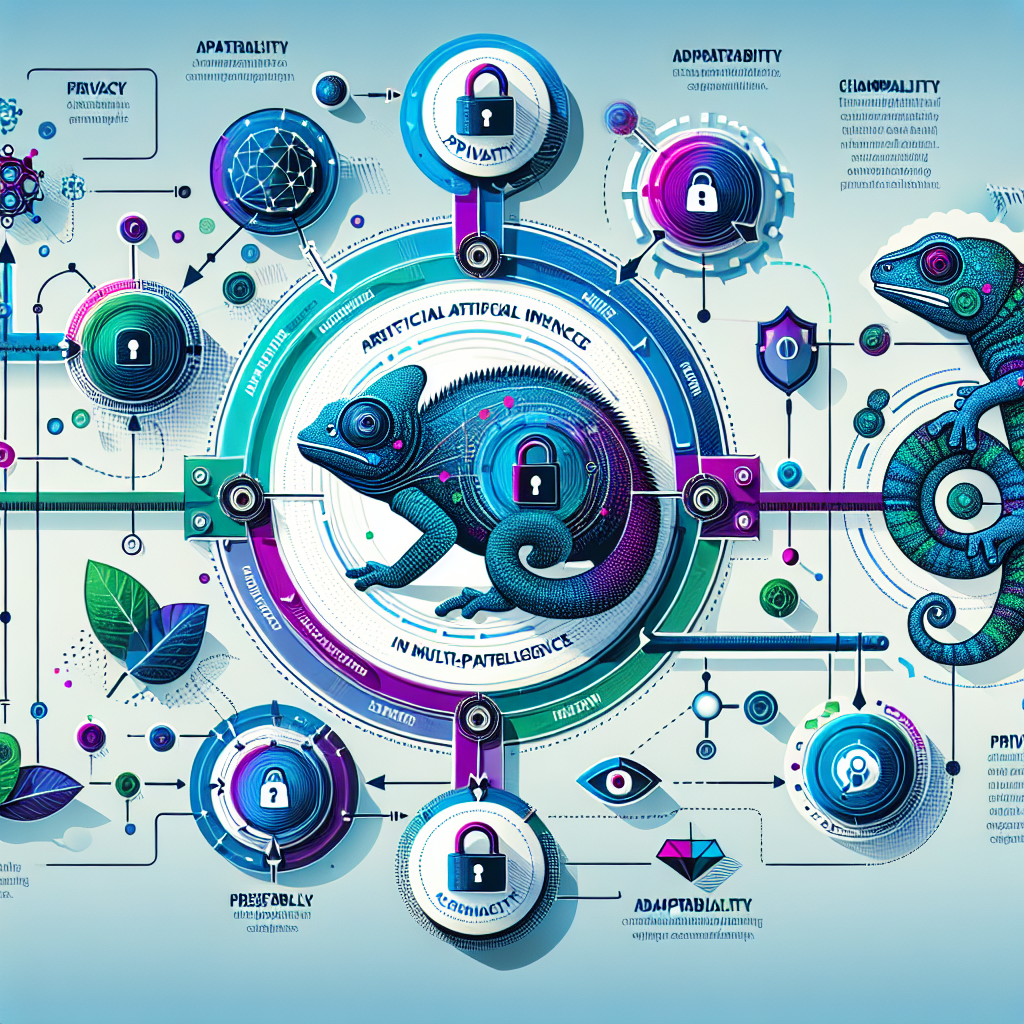
Over the years, the landscape of corporate communication has been significantly transformed, and Artificial Intelligence (AI) has been at the heart of this change. As flexible working, remote teams, and international collaboration become increasingly common in today's work environment, one realm in which AI is making a resounding impact is multi-party conference calls.

In the past, coordinating conference calls across different time zones, ensuring quality communication, and planning smooth operations contributed to multi-party conference calls being a complex task. However, the dawn of AI in conference calls has dramatically simplified these processes.
Primarily, AI algorithms can automate and streamline the process of scheduling and setting up conference calls. This can eliminate human errors, reduce administrative burdens, and ensure that each participant is included at the most convenient time. AI's predictive abilities can even help resolve possible technical glitches in advance, further improving the entire delivery of the conference.
Moreover, through real-time language translation and transcription services, AI can break language barriers, reach out to non-English speaking participants, and make conference calls more inclusive and efficient. These advanced features are transforming traditional communication methods, making AI-managed conference calls an efficient tool for corporate communication.
Attaining a balance between the advanced functionalities of AI and the human touch in multi-party communications, AI-driven technology in conference calls is the next big leap in global business communication. The advancements in AI will continue to redefine multi-party communication dynamics, leading to increased efficiency, productivity, and accessibility for all involved.
As multi-party communications increasingly shift to digital platforms, AI-managed conference calls are emerging as a crucial tool for enhancing accessibility, efficiency, and productivity. In this section, we delve into the core features of AI-managed calls that are significantly driving improvements in group communications.
The first noteworthy feature is voice recognition. Leveraging advanced speech recognition technology, AI-managed systems can effectively discern multiple speakers during a conference call, permitting a coherent flow of conversation. This technology allows meeting participants to experience hassle-free, smooth conversations, minimizing instances of interruption and improving overall communication clarity.
Next, the utility of real-time transcription is unparalleled. The ability of AI systems to generate accurate transcripts almost simultaneously as the speech is being delivered is incredibly beneficial for record-keeping and documentation purposes. Furthermore, it reduces the reliance on manual note-taking, freeing participants to focus wholly on the ongoing discussions. You may learn more about the transformative power of real-time transcription in this Forbes article.
The smart muting function is another critical feature. This feature comes in handy especially when the conference calls include a large number of participants, some of whom may have background noise disrupting the meeting quality. AI-managed systems can identify and mute such noise sources, maintaining the audio quality of the call. Explore more about the importance of sound quality in virtual communication in this Scientific American article.
To conclude, the integration of features such as voice recognition, real-time transcription, and smart muting into AI-managed conference calls is proving indispensable in facilitating efficient, high-quality multi-party communication. By continuing to advance these technologies, we will assuredly contribute to even greater improvements in collaborative digital communication environments.
The advent of AI-managed conference calls has stirred a significant revolution in the communication dynamics across various industries. By providing intuitive functionality, embedding real-time analytics, and offering comprehensive control over multi-party interactions, AI has substantially improved meeting outcomes. Let's explore a couple of real-world examples of AI-managed conference solutions that are transforming the way we communicate.

In the healthcare sector, an implementation of AI-managed conference calls has been instrumental in facilitating effective communication. Gartner's report on smart communication in healthcare highlights the case of a multinational healthcare firm that adopted an AI-based conferencing solution to streamline its team meetings. The AI system tracked critical meeting parameters like participant engagement, actionable items, and meeting duration, thereby bringing about a remarkable 35% boost in meeting productivity.
Moving towards the financial services industry, AI is making waves in steering insightful discussions through conference calls. Take, for instance, Finovate's case study on an international investment bank which utilized AI-managed conference calls to drive investment strategy meetings. The AI system efficiently spotlighted key market trends and updates during the meeting, enabling the team to make informed decisions. As a result, the bank experienced a 25% increment in the agility of their decision-making process.
In conclusion, these real-world examples underscore the colossal potential of AI-managed conference calls in enhancing the outcomes of multi-party conversations. Going forward, we can expect to see more sectors leveraging AI for efficient and effective communication during meetings.
In the realm of conference calls, the introduction of AI-managed systems promises to bring positive changes in user engagement, time management, as well as overall satisfaction. Compared to traditional methods, AI-managed conference calls present a remarkable revolution in multi-party communications.
The conventional method often requires participants to manually handle how the call progresses, causing distractions and interruptions. In contrast, AI-managed conference calls eliminate these challenges by automating the conducting and managing tasks.
Hence, participants can focus better on the agenda at hand, leading to improved user engagement. The AI manages tasks such as muting participants when needed, handling incoming questions, and ensuring smooth transitions, increasing the overall productivity of the call.
In terms of time management, AI-managed conference calls significantly outperform traditional methods. Transcriptions, task assignments, and reminders are automated, saving precious hours that would have otherwise been consumed by manual documentation. These systems also have the ability to schedule calls as per participant's availability, reducing the time taken in back-and-forths trying to find a mutual time slot. This feature drastically minimizes delays, ensuring that the conference action items are attended to promptly, which again leads to better time efficiency.
Exploring the aspect of overall satisfaction, AI-managed systems deliver an experience that is not only efficient but is also less stressful. By eliminating the common hassles experienced in traditional call setups, AI significantly enhances the user experience. It's not just the participants, even the meeting hosts find it considerably easier to deliver a successful conference with the help of AI.
In conclusion, AI-managed conference calls excel at improving and refining the quality of multi-party communications. With constant advancements in AI technology, the future of conference calls seems to be heading towards a more efficient and satisfactory direction.
As businesses increasingly adopt Artificial Intelligence (AI) to streamline operations, enhance productivity, and bolster client interactions, the realm of conference calls is no exception. Despite the undeniable potential of AI-managed conference calls, serious consideration must be given to the challenges that accompany technological advancement. Notably, the issues of privacy and the need for AI adaptation capable of addressing diverse business contexts stand at the fore of these challenges.

Concurrency with the necessary privacy guidelines is paramount, especially in today's digital economy where personal data misuse is a prevailing concern. AI applications that handle sensitive information, like the content discussed in a business conference call, may pose significant risks, necessitating robust privacy safeguards. Moreover, data encryption should be a non-negotiable feature of an AI-managed conference call system to ensure secure communications.
On another front, it's key to recognize that not all businesses are created alike. Therefore, AI's ability to adapt to various multi-party communication scenarios is essential. For instance, a tech start-up's conferencing needs may starkly contrast with those of a multinational corporation. Consequently, having a one-size-fits-all AI solution could potentially neglect the unique requirements of diverse entities, ultimately detracting from user experience and efficiency.
In conclusion, while AI-managed conference calls promise substantial improvements in communication, innovation must be paired with thoughtful consideration of the potential challenges. Emphasizing privacy protection measures and investing in adaptable AI systems are crucial steps towards ensuring a smooth transition into the future of business communications.
The trend of AI-managed conference calls is increasingly becoming the future of multi-party communications, reshaping the way we conduct meetings and collaborate. The potential of AI in this field is vast: experts speculate that it may further streamline communication and enhance productivity levels in hitherto unforeseen ways.
Common challenges in conference calls, such as distorted or overlapped voices and miscommunication, can be mitigated using AI. Platforms like Voicea are already utilizing AI to generate accurate transcripts from conference call conversations. This not only combats the issue of forgetting critical points discussed during the call, but also allows participants to focus on the conversation at hand, rather than scrambling to take notes.
Artificial Intelligence may also assist in managing the order of speaking. An AI assistant could potentially control the "digital floor" of the conference call, allow a sequential mode of conversation, and limit interruptions. For these advancements to work optimally, the AI would need to understand social cues and conversational flow. Experts believe that as AI evolves, we're likely to see improvements in this area as well.
One of the most promising possible advancements is the integration of machine learning into conference calls. Using data from past calls, AI could predict and adapt to the unique dynamics of a team. This implies that AI technology could potentially evolve to understand the nuances of team communication, yielding more effective and streamlined multi-party communications.
The fusion of AI and multi-party communication holds the potential for unprecedented strides in productivity. However, achieving this potential depends on advances in AI technology, an understanding of social dynamics, and the willingness of teams to adapt to new methods of communication. The future of AI in conference calls is exciting, with many promising possibilities on the horizon.
Start your free trial for My AI Front Desk today, it takes minutes to setup!








